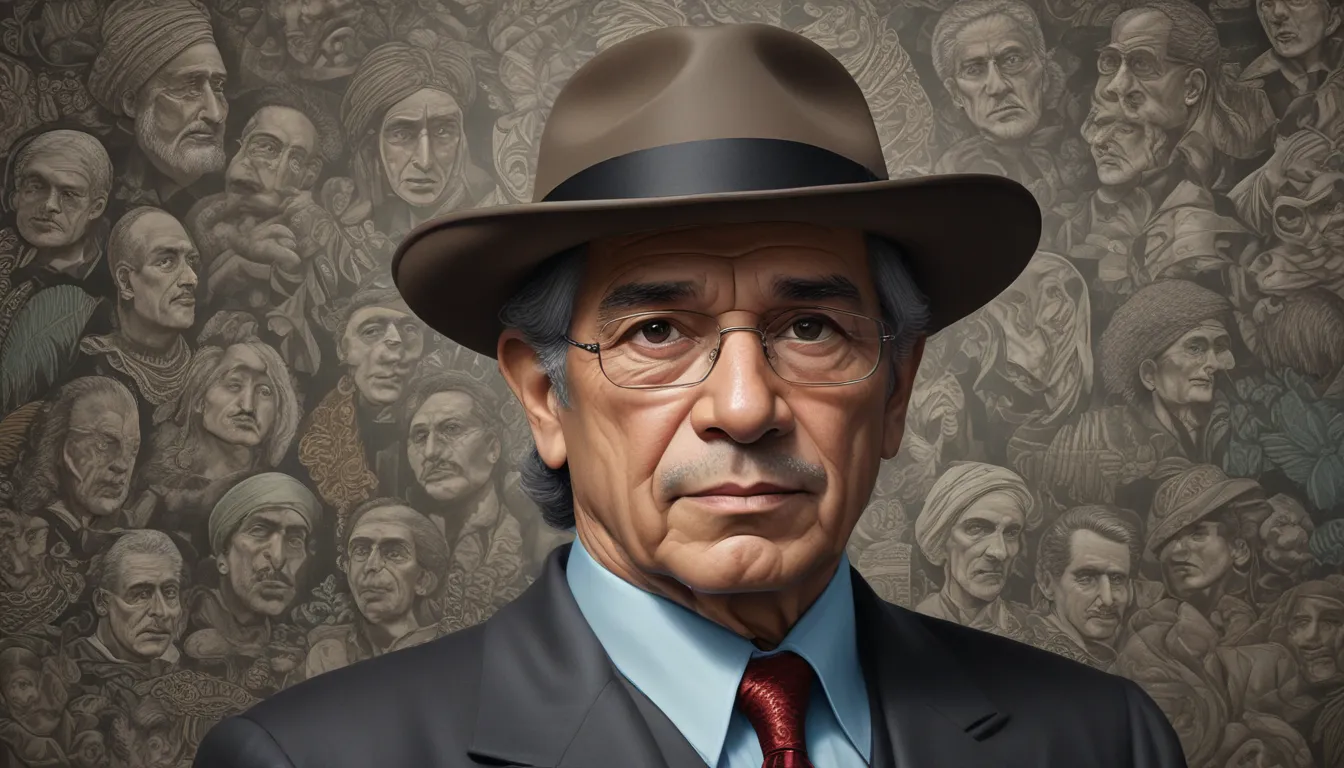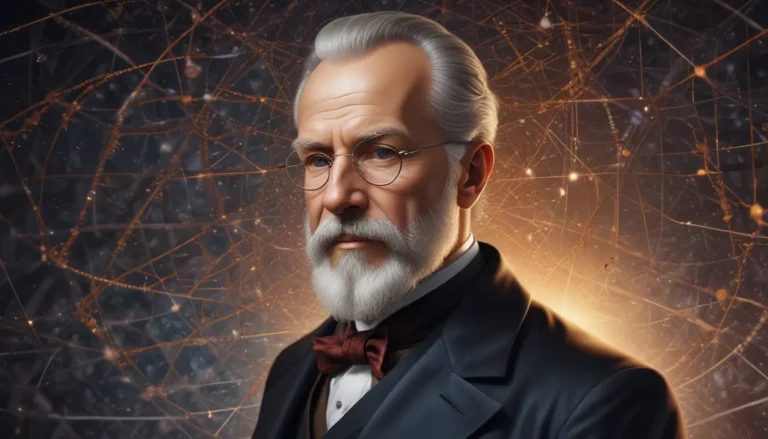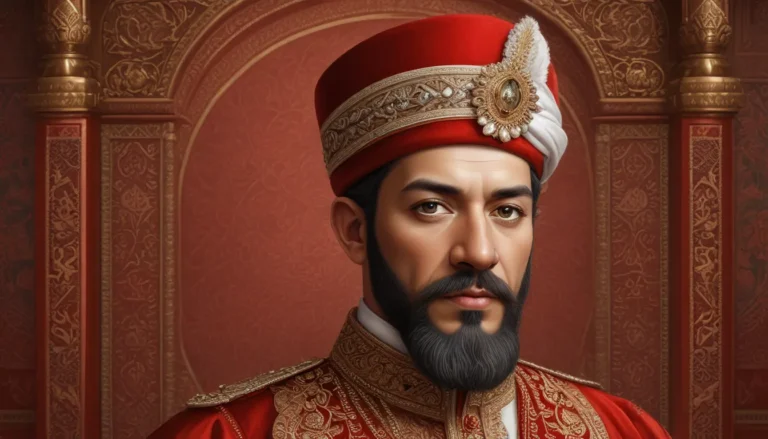The images in our articles may not match the content exactly. They are used to grab your attention, not to show the exact details in the text. The images complement the text but do not replace it.
Hello, history buffs! Today, we’re going to uncover the intriguing story of José Efraín Ríos Montt, a controversial figure who left a lasting impact on the history of Guatemala. From his rise to power to his turbulent reign and eventual trial for genocide, Ríos Montt’s legacy is a complex and divisive one that continues to be studied and debated to this day. Join me as we explore the captivating facts that shed light on this enigmatic leader and his profound influence on Guatemala and its people.
The Life and Legacy of José Efraín Ríos Montt
Let’s start by delving into the life and legacy of José Efraín Ríos Montt, a polarizing figure in Guatemalan politics. Born on June 16, 1926, in Huehuetenango, Guatemala, Ríos Montt served as the President of Guatemala from 1982 to 1983. During his presidency, he implemented controversial policies aimed at combating leftist guerrilla groups, earning him both staunch supporters and fervent critics.
From Military General to President
Ríos Montt’s journey to the presidency began with a distinguished military career. Rising through the ranks, he eventually became a General known for his hardline approach against insurgents. In 1982, he seized power through a military coup and assumed control of the country, ruling with an iron fist and implementing radical reforms.
The Dark Shadow of Genocide
One of the darkest chapters of Ríos Montt’s presidency was the Guatemalan genocide, a brutal campaign against indigenous Mayan communities. Accusing them of collaboration with guerrillas, Ríos Montt’s regime committed widespread human rights abuses and resulted in the deaths of thousands of innocent civilians, leaving a scar on Guatemala’s history.
Trial for Genocide and International Scrutiny
Years later, Ríos Montt faced a trial for his role in the genocide, becoming the first former head of state to be convicted of genocide by a national court in 2013. Despite the initial verdict, it was later overturned on a technicality, leaving questions about accountability and justice unanswered.
A Controversial Alliance with the United States
During his presidency, Ríos Montt maintained close ties with the United States government, receiving military aid and support in the fight against communism. However, these connections have been criticized in light of the widespread human rights abuses committed under his regime, sparking debates and divisions among the Guatemalan population.
Religious Rhetoric and Political Ideology
As a born-again Christian, Ríos Montt incorporated religious rhetoric into his political speeches and policies, viewing the fight against leftists and indigenous populations as a religious duty. This blending of religious beliefs and political ideology further polarized opinions about his leadership and legacy.
Legacy and Ongoing Debates
Ríos Montt’s legacy remains a subject of intense debate, with some lauding him as a hero who restored law and order during a tumultuous period, while others condemn his regime for gross human rights violations and the erosion of the rule of law. The discussions surrounding his actions continue to shape Guatemala’s political landscape and collective memory.
Efforts Towards Reconciliation and Healing
In the aftermath of Ríos Montt’s regime, efforts towards national reconciliation and healing have been ongoing. Various organizations and individuals are dedicated to supporting the victims of the genocide and fostering dialogue and understanding among different sectors of Guatemalan society, aiming to address historical injustices and promote unity.
Conclusion: Reflecting on Ríos Montt’s Enigmatic Legacy
In conclusion, José Efraín Ríos Montt’s enigmatic legacy as a complex and divisive figure in Guatemalan history invites us to explore the nuances of power, politics, and justice. His rise to power, controversial policies, and subsequent trial for genocide have left a profound imprint on Guatemala’s past and present, challenging us to seek truth, reconciliation, and understanding in the face of historical injustices.
FAQs: Unraveling the Legacy of José Efraín Ríos Montt
-
Who was José Efraín Ríos Montt?
José Efraín Ríos Montt was a military officer and politician who served as the president of Guatemala from 1982 to 1983, known for his controversial policies and ties to the United States. -
What were the accusations against Ríos Montt?
Ríos Montt faced accusations of genocide and human rights abuses during his presidency, particularly in the brutal campaign against indigenous Mayan communities. -
Did Ríos Montt face a trial for his actions?
Yes, Ríos Montt faced a trial for genocide and crimes against humanity in 2013, marking a significant moment in Guatemala’s history and international justice. -
What is Ríos Montt’s legacy?
Ríos Montt’s legacy is a contentious one, with differing views on his leadership and impact on Guatemala’s political and social landscape. -
How is Ríos Montt remembered today?
Ríos Montt’s death in 2018 reignited discussions about his legacy, with ongoing reflections on his role in Guatemala’s history and the pursuit of justice for victims of human rights abuses.
Intrigued by historical figures like Ríos Montt? Dive into our articles on impactful leaders and historical events to uncover more fascinating stories and insights. Join us on a journey through the pages of history as we unravel the complexities of the past and their enduring relevance in shaping our world today.






